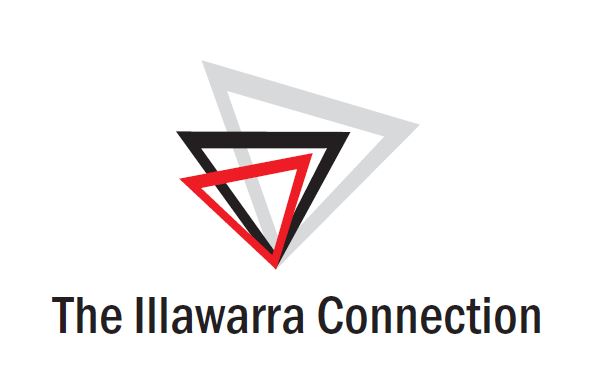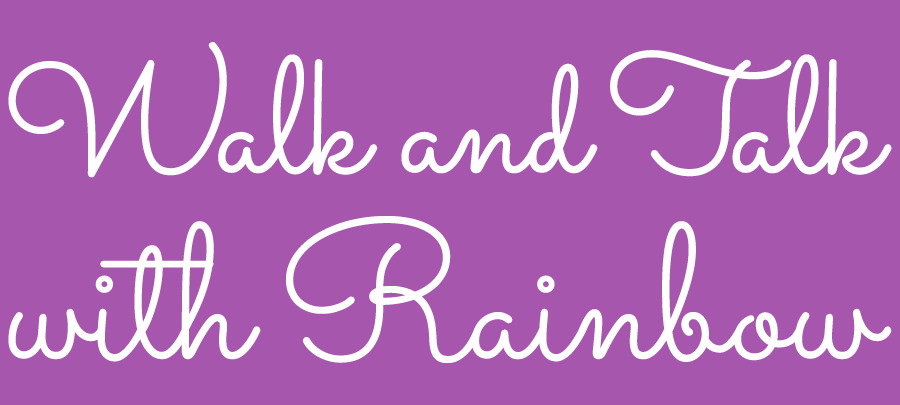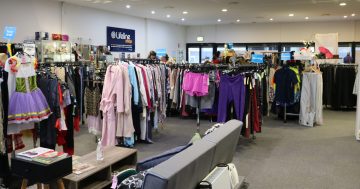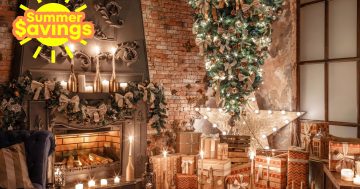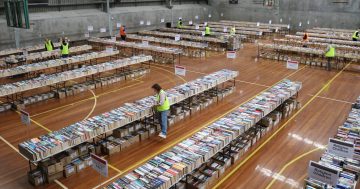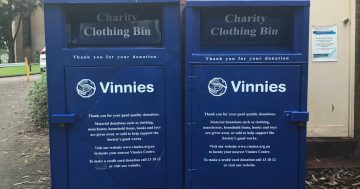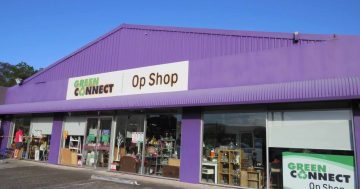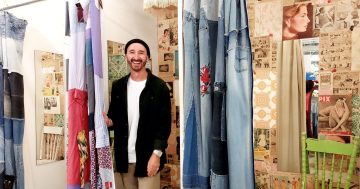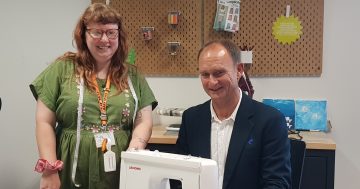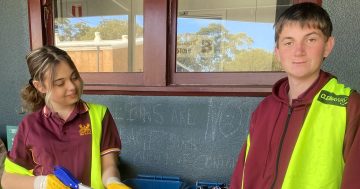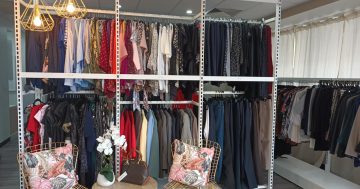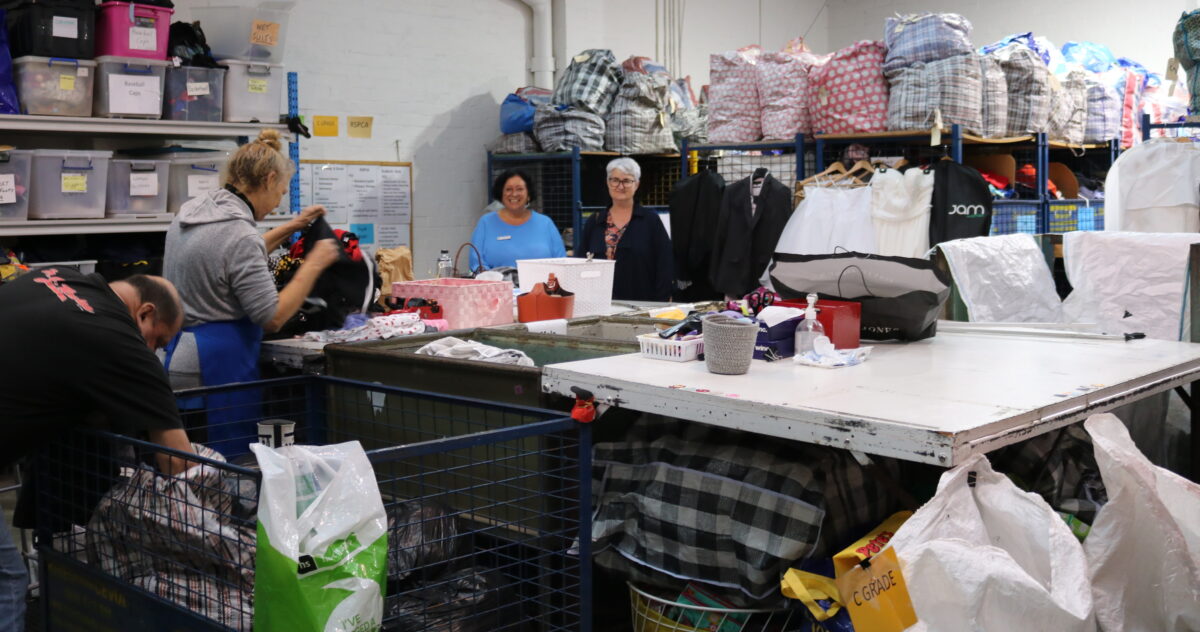
Lifeline Wollongong shop Team Leader Sylvana Cachia and Retail Area Manager Alicia Ferderer in the clothing sorting area at the Ellen St shop. Photo: Jen White.
The average Australian donates almost 40 kg of items to charity shops every year, but few are aware of what happens to their unwanted goods when they’re left at the local op shop.
Donations to Lifeline South Coast’s op shops at Wollongong, Corrimal, Dapto and Nowra are carefully inspected and sorted before going on sale to ensure all clothing and other items are in working condition and aren’t damaged in any way.
Proceeds from the shops go directly towards funding local suicide prevention services and the critical 13 11 14 telephone crisis support line, which answers more than 30,000 calls every year across the Illawarra and South Coast.
Lifeline’s retail outlets not only help to save lives, they also help to save the planet by recycling items that can’t be sold in the shop because they’re damaged, or don’t meet the high standards of quality control. Like most charity op shops, Lifeline had long carried the cost of throwing away damaged or unusable items that people donated.
However, in recent years, Lifeline has made a conscious effort to recycle these items, rather than throw them away and add to landfill waste.
In May alone, the Wollongong shop recycled almost 7 tonnes of goods, including clothing, crockery, broken electrical equipment, rags and blankets. That’s roughly as much as the average African elephant weighs.
Wollongong shop team leader Sylvana Cachia said her team was passionate about not just throwing items away that don’t meet quality control.
“We really do think, where can this have another life?” she said.
Behind the racks of clothes and shelves of homewares, books and bric-a-brac is a small army of mostly volunteers, whose job it is to ensure all goods to be sold meet the highest standards.
The outlet in Ellen St, Wollongong is the main sorting hub for donations. The back rooms are set up in sections – clothing, homewares, electrical, craft – and each has a well-established routine for workers to inspect and allocate items.
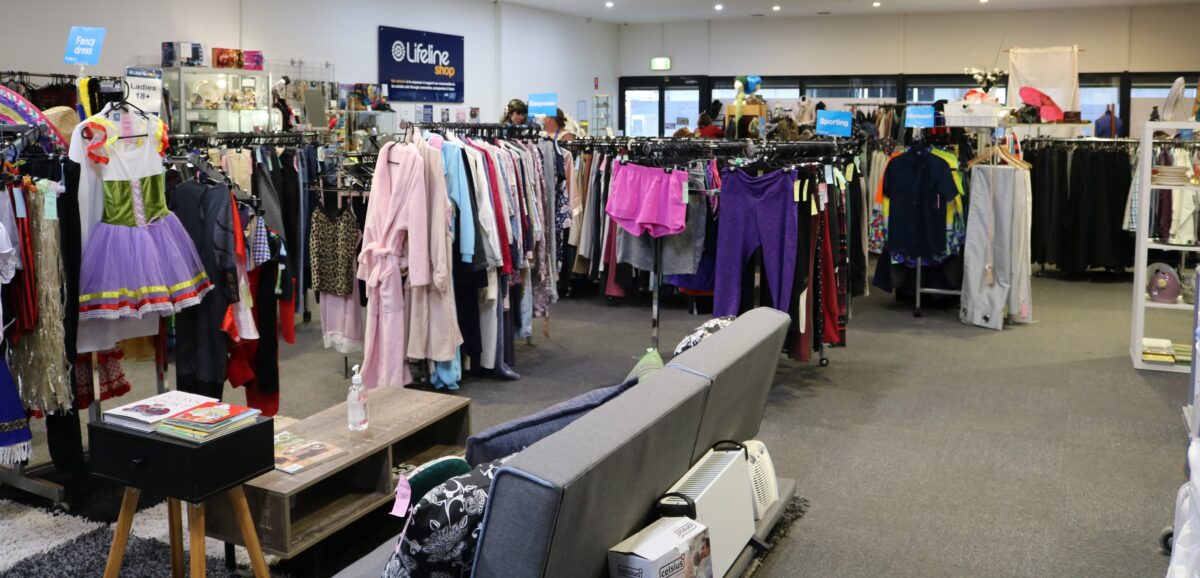
Inside Lifeline’s shop in Ellen St, Wollongong, which serves as the main sorting hub for donations.
Volunteer Penny is doing a first sort of a bag of donated clothes. After shaking the contents out on a table (to avoid any hidden “nasties”), she carefully inspects a woman’s black jacket. This one meets the Class A standard and will be sold in the shop – no marks under the arms, no rips or tears, no frayed cuffs or collars and all the zippers work. Another volunteer does a second sort of all items that will eventually be placed in the shop for sale.
Retail area manager Alicia Ferderer said donated clothing should be in good condition to allow it to be sold in the shops, or on-sold to other organisations.
“People sometimes think that if a t-shirt’s got a paint stain on it can be used for rags or something, but that’s not the case, it’s got to be in tip-top condition,” she said.
Clothing that doesn’t pass the first inspection will then be sorted into B or C-grade stock. B-grade stock (still good quality but items that may already be in high supply or the demand is higher in other areas) is sold to a larger Sydney Lifeline branch. C grade stock is on-sold, including to Shoalhaven company DLG for repurposing, diverting tonnes of waste that would otherwise end up in landfill.
“Before we started selling to DLG, we would have eight bail bags of unsaleable clothing each day – now we have two, maximum three bags,” Sylvana said.
Almost every unsaleable or unwanted item that’s donated is recycled in some form – and sold – with a few exceptions that Sylvana has been working hard to overcome.
“I haven’t been able to find anywhere that will accept hard plastics for recycling, things like old toys, plastic bric-a-brac.”
Unwanted or damaged appliances such as printers, along with an array of glasses and crockery, are sold to Wollongong’s SmashLAB for their clients to smash to bits while they let off steam in a rage room.
Metals and paper products are taken to the recycling centre at Kembla Grange, while the RSPCA takes old blankets, pillows and quilts to make their guests comfortable. Truck Wash buys between 80 kg and 120 kg of old sheets, towels and clothing each month and other local companies will pay $0.25 per kg for rags.
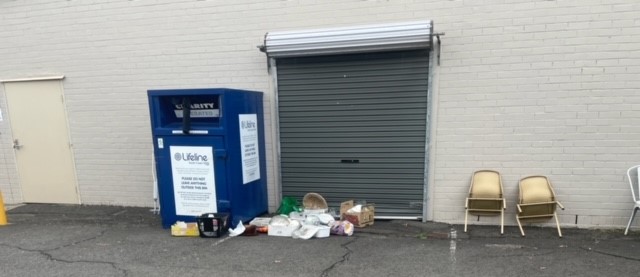
Donated goods dumped next to Lifeline’s bin at the Ellen St shop.
Unfortunately, Lifeline and other op shops still have to foot the bill to get rid of items that are dumped at their outlets after hours and damaged, or that can’t be recycled in any other way.
Last year, Wollongong City Council removed Lifeline’s long-held fee waiver at Kembla Grange tip, which the organisation estimates will cost about $12,000 annually.
A council spokesperson confirmed the full-fee exemption for community service organisations (CSOs), including charities, had been removed following a review last year.
The spokesperson said Council had been working with CSOs to develop and implement tailored waste management plans and continues to support these organisations in a number of ways, including waiving the full waste fees for illegally dumped charitable waste on public land that has been reported to Council.
CSOs can also receive a subsidy of $146.90 per tonne for unsorted waste, if the CSO is registered with the NSW Environment Protection Authority.
“Council’s free on-site recycling and sorting bins at Whytes Gully … reduces the volume going to landfill and reduces the cost for individuals and charitable organisations.”
How you can help Lifeline reduce its waste costs:
Only donate good quality, wearable clothing, shoes and accessories, with no rips, stains or tears. It’s an added bonus if clothing is sorted and bagged in lots (women’s, men’s, children’s).
All books in good condition are accepted but any books that are yellowed, mouldy, torn, dirty, written in or defaced can’t be sold.
Bric-a-brac is welcome – crockery, wine racks, candelabras, or any other curios and ornaments can be donated.
Visit Lifeline South Coast for more information on how to donate, shop locations and volunteering options.



